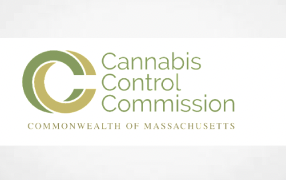Here’s what their alert says
As of May, cities and towns are now required to have in place certain policies and processes to promote equity in the cannabis industry at the local level. To assist constituents, following a 3-0 vote at its May 9, 2024 public meeting, the Cannabis Control Commission (Commission) published a Model Municipal Equity By-Law or Ordinance Template (Model Ordinance), as well as Guidance on Municipal Equity and Industry Participation (Guidance).
Under Chapter 180 of the Acts of 2022, the Commission was required to establish certain policies for cities and towns to adopt for their engagements with license applicants and licensees that are equity applicants as identified below:
- Social Equity Program Participants (SEP),
- Economic Empowerment Priority Applicants (EEA),
- A new category of Social Equity Businesses (SEB), defined as Marijuana Establishments (ME) that the Commission has confirmed are made up of majority ownership of individuals who are approved SEPs, EEAs, or both; and
- Individuals and entities that are pre-verified or verified by the Commission as SEBs.
The Model Ordinance and Guidance is intended to support municipalities with clear policies and procedures to encourage full participation in the regulated marijuana industry by communities that were disproportionately harmed by marijuana prohibition and enforcement.
What does this mean for you? Check out the frequently asked questions below for some answers.
- What exactly is changing at the municipal level?A Host Community’s response to these regulatory changes will vary from municipality to municipality. In general, cities and towns that host cannabis licensees in their community are now required to adopt minimum policies and procedures that support transparency and establish equity plans and standards. This may include the following:
- Adopting the agency’s Model Ordinance;
- Adopting an ordinance or by-law to exclusively permit SEBs for at least three (3) years; or
- Creating a local approval process for equity applicants (EEAs, SEBs, SEPs, and verified or pre-verified SEBs) that is administered on a 1:1 basis.
Additionally, all Host Communities must:
- Post information about its local licensing process on its website and in an easy to see or access location at its municipal offices;
- Adopt and publish a scoring methodology to evaluate applicants when issuing Host Community Agreements and publish certain information; and
- Have a Positive Impact Plan—similar to MEs and Medical Marijuana Treatment Centers—that reduces barriers to industry entry for communities that have been disproportionately harmed by the previous marijuana prohibition and enforcement.
Please note: Each Host Community must comply with these requirements by May 1, 2024 and will adopt policies that are reflective of its own unique circumstances. The timeline by which such a municipality implements these regulatory changes will differ depending on its local processes for establishing zoning, ordinances, and by-laws (e.g., Town Meeting).
- What should one do if they would like to file a complaint against a municipality that is not yet in compliance with the municipal equity regulations?The Commission continues to accept constituent complaints on any concerns about regulatory compliance issues through email ([email protected]) or phone call (774-415-0200). Complaints relative to this section should be submitted by email with subject line, “Municipal Equity Complaint.”
- What happens after the Commission receives a complaint about a Host Community?Host Communities have until May 1, 2025 before the Commission imposes fines against those that are out of compliance and/or failed to come into compliance. In the meantime, the Commission may take any number of enforcement actions against non-compliant Host Communities, including but not limited to issuing Notices of Deficiency and requiring Plans of Correction.
After May 1, 2025, the Commission may also publish a list of Host Communities that have been assessed a fine for non-compliance with municipal equity regulations to the Commission’s website.
- What is the difference between EEAs, SEPs, SEBs, and individuals and entities that can be pre-verified or verified as SEBs by the Commission?EEAs are individuals and entities that were certified by the Commission in April and May 2018 based on certain equity criteria. The application process for this certification was open for a limited time in 2018 and is no longer available.
SEPs are individuals that are periodically approved and certified by the Commission as part of its Social Equity Program. To date, the Commission has offered this certification four (4) times with the last cohort of applications being accepted as of April 30, 2024. Acceptance into the Social Equity Program allows individuals to receive certain benefits including training and technical assistance. While the current application process is closed, the Commission intends to offer other cohort periods in the future.
SEBs are licensed entities that have majority ownership of individuals who are SEPs, EEAs, or both.
Unlike the previous designations, individuals and entities who have not yet been approved as SEPs or were unable to be approved as EEAs in 2018, may still benefit from the Commission’s new municipal equity provisions if they apply for, and are verified or pre-verified, as SEBs. This new process will allow individuals and entities that meet certain equity criteria (similar to the Social Equity Program criteria) to receive pre-verification or verification as an SEB from the Commission for interactions with Host Communities. Although applicants for licensure may seek pre-verification as an SEB, currently licensed entities will also be able to apply for verification as an SEB. The application for these new designations will become available in the near future, and an announcement will be made at that time.
For more information and resources, please visit MassCannabisControl.com. If you have specific questions about municipal equity, please contact the Commission by email via [email protected] or call (774) 415-0200.

















